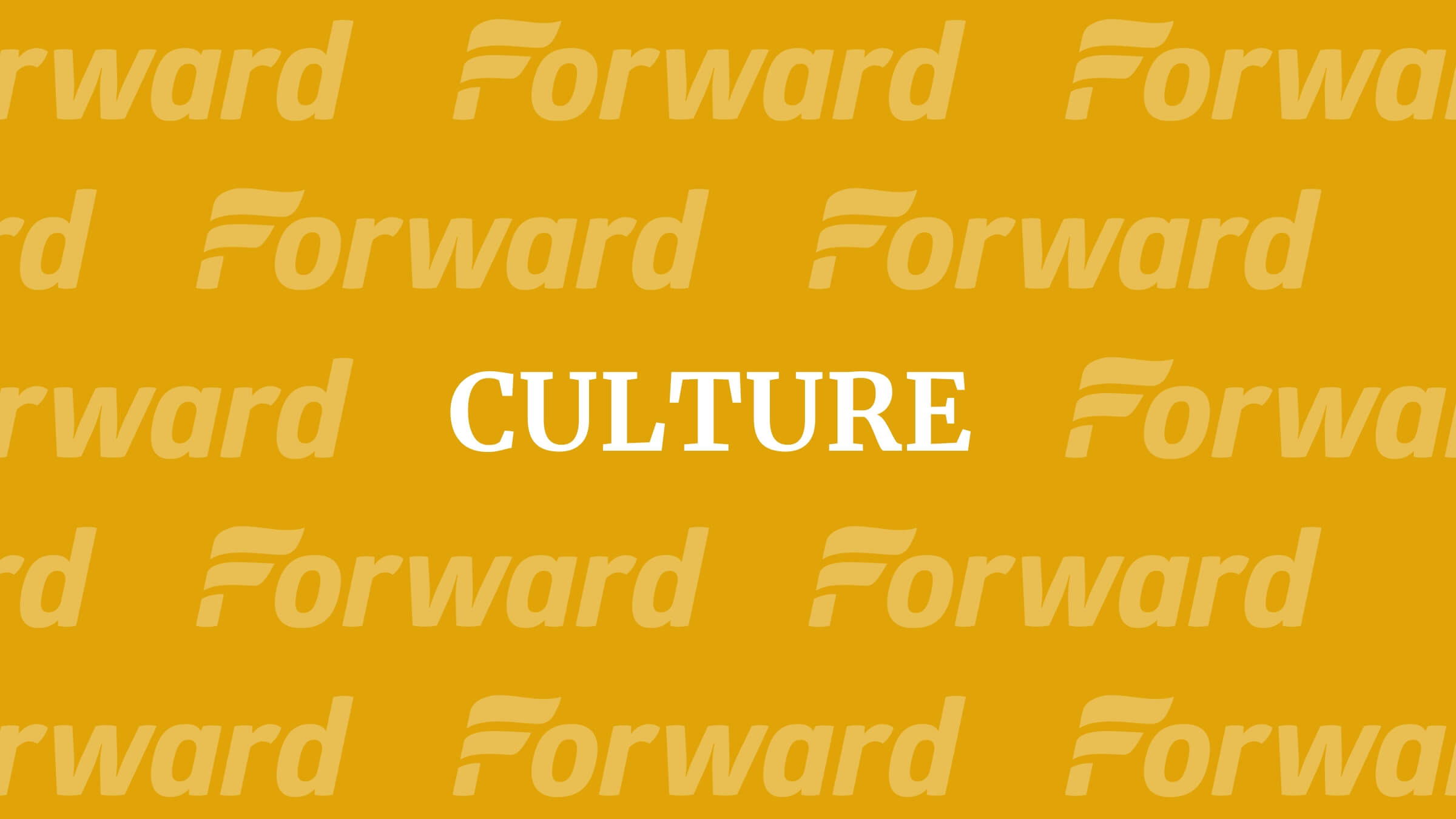Why Maimonides is the ideal mind for surviving the era of Fake News
Alberto Manguel’s Jewish Lives book on Rambam reveals a thinker guided by reason

Graphic by Angelie Zaslavsky
Moses ben Maimon, also known as Rambam, and commonly called Maimonides, was the ultimate Jewish polymath.
He was the court physician to the sultan Saladin, and author of the Mishnah Torah and The Guide for the Perplexed. But his life was marked by exile from his native Spain. Regime changes forced his family to move to Morocco, Palestine and finally, Egypt, where he died in 1204. Along the way he refined a philosophy that blended Islamic, Christian and Greek concepts and applied it to Jewish Law.
In a new Jewish Lives biography, Maimonides: Faith in Reason, Argentine-Canadian author Alberto Manguel offers a multifaceted look at one of history’s most consequential minds, whose influence touched thinkers as varied as Thomas Aquinas, Franz Kafka and James Joyce.
In an approach that mirrors his subject — or, perhaps, Jorge Luis Borges, whom Manguel read to as a young man, after the renowned author lost his sight — Manguel draws widely from the canon to suggest Maimonides’ significance for today.
“What fascinated me was his absolute trust in reason,” said Manguel, a prolific writer, anthologist and essayist and the former director of the National Library of Argentina. “In this age that we are living in, where reason seems to have less and less importance, I think it’s fundamental that we go back to a mind like that of Maimonides to regain some confidence in our designation as a rational species.”
Manguel spoke with me over the phone from his room at a Manhattan hotel about how to navigate Maimonides’ large body of work, how John Milton used his writings to justify his divorce and how the Rambam “helps us to think.” The following conversation has been edited for length and clairity.
You start the book saying you didn’t know much about Maimonides when you were approached by Yale to write this. Why do you think they thought of you?

The most I could claim is to be interested. I knew who Maimonides was and of his reputation, but I hadn’t read him. When I was in high school in Argentina, we had an excellent teacher, so in talking about the literature of Spain in the Middle Ages, he mentioned Maimonides and The Guide for the Perplexed, and that title remained in my imagination as something that I should look up at some point, but I never did. So this gave me the opportunity. The disadvantage that I had, is that I don’t have Hebrew and I don’t have Arabic. So I have to rely on secondary or third sources. And I would never claim any kind of scholarship. I decided to approach Maimonides as a secular reader, and see where this would lead me.
There’s a poignant part at the end of the book where you write how his “life’s work can be seen as a heroic effort to restore the golden age of a certain degree of intellectual freedom.” He was very itinerant, living in different places and glomming on to different things. Was he limited in what he could say in his own time?
Of course. We’ve never lived through a time of absolute intellectual freedom. He was brought up in a civilization that fostered the dialogue. Jewish intellectuals knew what the Islamic intellectuals were writing about, and to a lesser degree, the Christian intellectuals. But by the time he was a young man, the persecutions began, and the family had to lead this itinerant life that led Maimonides in the end to settle in Egypt. So it wasn’t easy, but Maimonides developed two things that were essential. One was a knowledge of the other cultures, especially Islam, and the philosophers and theologians were fundamental in fostering Maimonides’ own ideas. And then the strategies of survival.
Very controversially he said that God orders us to live for Him not to die for Him. And so if, he says, you are forced to pretend to convert, it doesn’t matter if from the lips outwards you pronounce certain declarations of faith that are not your own as long as in your heart you remain faithful. And that was the strategy that many Jewish families developed throughout the time.
As you say he was conversant with Islamic thinkers, but then also the Greeks. What do you see him borrowing from them all and how that might distinguish him from some of his contemporaries?
The way that Maimonides develops his thoughts is that he enters a dialogue with these different forms of thinking and finds points of connection. For instance, with certain Islamic thinkers about God being defined through the negative. You can say what God is not, you cannot say what God is, because if you attempt to do that, you indulge into blasphemy of thinking that you are God, because no one can define a God except God Himself. And so he finds a way of defining God through the negative. “God is not this, God is not that.” At the same time he takes from the Greeks, especially from Aristotle, the idea of the mean. What you can strive for, is neither extreme but a measure of reflection, contentment, understanding that is the mean.
The Guide for the Perplexed stuck with you but it’s actually not the most accessible text despite the title. What did you start with when you began to approach him?
I actually did start with The Guide. Maimonides is very clear in that he is writing this for someone who can understand him. It’s a text that does not intend to clarify everything for everyone. So it’s OK if you cannot accompany Maimonides in his reflections to the end. And for me, as a secular reader, this is a way in which, for instance, I read certain poetry. You don’t understand everything, but you are carried by the flow of ideas and images.
Maimonides has toward the end of the book, the image of the palace, through which you go to try and reach the innermost courtyard of the king, but not everyone can reach it and it is OK if you are only in the outer courtyards and you don’t have access to the royal presence itself. This is something that is developed in other religions as well. For instance, in Dante, when describing Paradise, he says that the souls in paradise have degrees of grace and they all share the same bliss, but they receive enlightenment in different degrees. Maimonides conceives this palace as a place of equal intent, where you as a seeker receive the bliss of seeking on the right path. The search is what is important, the will to understand.
This is not a typical biography, because it’s a biography of ideas, and it’s very eclectic with its references, kind of like Maimonides’ own work. How did you land on that approach?
(laughs) That approach comes from ignorance. There are so many scholarly books on Maimonides that approach the subject in a much more systematic way. I don’t have that kind of mind. So, when I come across a fact or an idea, it leads me to another idea. And I play this game of connecting the dots and hope that in the end, some image will emerge. Which is why in the last chapter, I tried to trace the readings of my Maimonides throughout time, because what happens, as with any great intellectual figure, that figure changes through the readings in ways that the figure itself could not suppose. Maimonides could not have imagined being read by Freud or by Borges, nor by Cythia Ozick.
But these readings are so different and so unexpected and enrich the figure, and don’t invent what is not there. Simply they recognize aspects of Maimonides’ thinking that were not clear to Maimonides’ contemporaries and perhaps even to my Maimonides himself
I was fascinated to see that he inspired John Milton’s divorce! Milton wrote: “Maimonides tells us that divorce was permitted to Moses to preserve the peace and quiet of his family.” It’s quite the legacy.
It’s a legacy that has been controversial since the very beginning. Maimonides in the width of his period was able to look, very rationally and systematically, at Jewish law. At the same time he could look on the large question of how to live in such a troublesome world, and furthermore, up to what point you can allow your imagination to stretch, to embrace the unknowable. So the great controversy on Maimonides is whether he was exclusively the teacher of Jewish law, or whether he was a mystic. And many scholars are unable or unwilling to see both aspects of the man. Maimonides himself, it’s very clear, considered that these were all realms of the human intellect, and that we are obliged, because God gave us the grace of intelligence, to pursue them all in the measure of our capabilities.
And then there’s also of course Maimonides the physician.
Of course, which is a way of looking at the physical reality. He was a very practical man, and this is why I think he is an essential figure today, because he believed that intellect, reason, can allow us as human beings to tackle practical questions and questions of faith and scientific questions and political questions. And this is something that we are losing today. We are losing it in a society that is not only invaded by Fake News, but by systems of communication that try to reduce dialogue and don’t trust extended thinking, and so trust an incoherent tweet, rather than an extended, musing essay on the problems that confront us.
If you were to recommend a place to start with Maimonides, what would it be?
I think that it depends on what you’re interested in. If you’re interested in the practical aspects of life, perhaps his “Letter on Apostacy” just so that you get an idea of how Maimonides confronted the problems of living in his age. If you are interested in metaphysical questions, and you allow yourself to enter a much more imaginative realm, then I would start with The Guide for the Perplexed. If you start with the Mishnah Torah, you are deeply in the realm of legal thought, and that might interest you but it doesn’t give you the broader vision of Maimonides the philosopher.

















